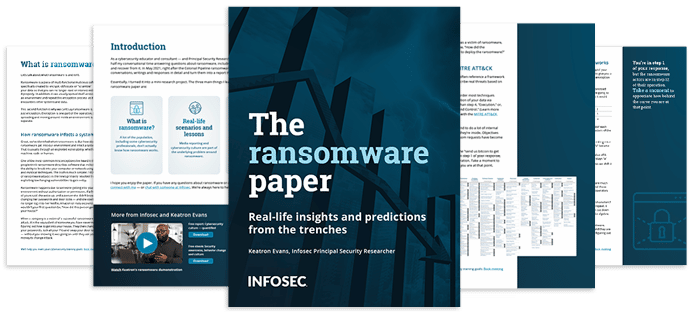ChatGPT and the strengths and limitations of cognitive AI
ChatGPT has taken the world by storm. It is all over the news — not just IT news but prime-time news. Some consider cognitive artificial intelligence (AI) a technology that could eventually solve every ill, change the course of history and bring about a utopian society. Others have a distinctly bad feeling about it. They conjure up images of HAL from 2001: A Space Odyssey, the replicants from Blade Runner, Skynet from The Terminator or VIKI (Virtual Interactive Kinetic Intelligence), the supercomputer from I, Robot who decides that all humans must be destroyed to save the planet.
Whichever of those possible fates transpire, one thing is clear: Advanced AI systems like ChatGPT are here to stay. They will impact humanity in ways we have yet to fully appreciate — some positive, some undoubtedly negative. No wonder some politicians are already talking about reining in AI.
Cognitive AI usage explodes
Within five days of being announced to the world by its creators at Open.AI, ChatGPT surpassed a million users. It has now topped over 100 million, with the Openai.com website registering about a billion visits a month.
But what exactly is ChatGPT? GPT stands for Generative Pre-trained Transformer, a form of advanced AI that simulates thought via a neural network machine learning model. That model is trained on data gathered from the internet. It can generate human-like responses to a given prompt or question, converse with users on a variety of topics and create content. Far from being a superior chatbot, ChatGPT can author documents, solve problems, translate from one language into another and even write computer code.
Should you pay the ransom?

The latest version of ChatGPT is GPT-4, which can access more recent data than its predecessor. And that highlights one of its weaknesses: ChatGPT cannot consider the very latest information as it is not yet programmed to do so. Consider this example: if Candidate A was certain to win an election but died the day before, ChatGPT would still predict that Candidate A would win the contest. Why? The model lacks data from the last few weeks. The missing period of omitted information is steadily shortening, but it still exists.
Some say ChatGPT has a sense of humor, but that stretches things. The most it can do is break down the logic in a joke to show why something is considered funny. It can also interpret images quite well. This enables it to build websites based on sketches and suggest recipes based on a photo of the available ingredients.
ChatGPT: Number of parameters analyzed
The previous version of ChatGPT (GPT-3.5) could quickly review anywhere from 100 million to six billion parameters and churn out answers. GPT-4 is rumored to have up to 100 trillion parameters (the exact number hasn't been released and may be more like a trillion to 10 trillion).
Its sheer scale means that ChatGPT packs quite a punch. And it can be used positively or negatively. Jack Nichelson, Chief Information Security Officer (CISO) for Inversion6, noted on the Cyber Work Podcast that a couple of researchers managed to get ChatGPT to provide malware code in Python that could be used to inject a DLL into explore.exe. That capability scared a lot of people. Yet it doesn't mean ChatGPT is intelligent enough to hack enterprise systems — far from it.
The code made by ChatGPT was far from perfect. It omitted key elements like how to convert it to execute in a Windows environment, how to elevate permissions and other aspects of crucial hacking functionality.
“Most of that malware blew up and didn't really work,” said Nichelson. “It still takes an underlying knowledge to be able to create a functional program with ChatGPT.”
Evolution of ChatGPT
Yes, there are definite limitations on what ChatGPT can do. But that doesn't mean it is going to stay that way. For example, there were no search engines during the early days of the internet. People had to know the IP address of the sites they wished to visit. Fortunately, there were only a small number of websites in existence. Thirty years later, we have over a billion websites and search engines spitting out answers in milliseconds. The Google search engine changed the game, and ChatGPT might represent the next seismic shift.
Far from replacing humans, Nichelson pointed out that this new AI technology should be viewed as an assistant. It assists in a search, digesting large documents, mathematics, cybersecurity, and developing code. It can't replace humans — at least, not in creative and knowledge worker roles. Yes, it takes the time out of finding things and compiling things. It can generate basic code based on code that has been written before. But it can't create new code to solve a problem that has never been considered.
"ChatGPT is going to be an amplifier of people's natural abilities, just like a computer or the internet became an amplifier," said Nichelson. "It is not intrinsically intelligent without human intervention."
If a person isn't good at math, technology tools provide accuracy that can then be harnessed to solve problems. Similarly, ChatGPT can compile text and suggest document drafts for review if someone isn't strong in writing. Some will be pretty good. Others will be wildly off. But many people will use this feature to give them a starting point — it is often far easier to revise something that is sitting in front of you and is on point compared to confronting a blank screen.
ChatGPT, then, doesn’t supplant human thinking and creativity. But it can help better convey ideas with proper grammar and spelling and add efficiency. Additionally, it can summarize concepts succinctly and accurately, which can be of real benefit during the research phase.
Phishing simulations & training
![]()
Good and bad of cognitive AI
Legislation around ChatGPT and similar advanced cognitive AI technologies has been slow. In addition, employees are already misusing these tools and putting data at risk, and cybercriminals are already leveraging it. It’s hard to fully understand the many creative (and destructive) ways adversaries will use these tools in the coming years.
Thus, the strengths and weaknesses of cognitive AI tools should be considered part and parcel of any human advance. Fire brought warmth and cooking but could also destroy. Metalwork brought tools and more solid structures as well as weapons. Cars changed a 20-mile journey from an all-day affair to a few minutes but also brought gridlock and pollution. Every advance has a plus and a minus. It is up to enough people to harness innovations like ChatGPT so that the gains will outweigh any detriment to society.
For more on this topic, watch the full Cyber Work Podcast, with Jack Nichelson.




